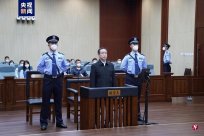Due to the epidemic situation in various places, span> High temperature and rainy weather continues to lead to market turning seasonal off -season not(PMI) Falling to 49 this month, below market expectations, has also reversed the expansion trend for two months.not The data released by the National Bureau of Statistics on Sunday (July 31) showed that the official manufacturing PMI in July dropped from 50.2 in June to 49 and fell again to the contraction area.The index higher than 50 indicates the expansion and below 50 indicates atrophy.The median forecast calculated by Bloomberg earlier was 50.3 based on the view of 30 economists.not Non -manufacturing business activity index also from > 54.7 last month fell to 53.8, which was lower than the general expected 53.9, but still expanded.
Senior Statisticser of the Service Industry Survey Center of the National Bureau of StatisticsThe level of prosperity has fallen, and the foundation of restoration needs to be stable, and refers to the insufficient market demand, which is the main difficulty facing the current manufacturing enterprises.
Zhao Qinghe also said that the decline in PMI in July was affected by factors such as the low season of traditional production, the lack of release of market demand, and the decline in high energy consumption industry.Among them, PMI, such as textiles, petroleum coal and other fuel processing, black metal smelting and pressure -delay processing, continues to be located in the contraction range, which is significantly lower than the overall level of manufacturing. It is one of the main factors of PMI falling in July.
According to the surging news report, although the manufacturing PMI in July will be affected by the off -season, Wang Qing, chief macro analyst of Dongfang Jincheng, believes that in July, it continues to present the characteristics of "strong supply for strong demand" and fall down.The amplitude far exceeds the seasonality, mainly due to the impact of the epidemic; the new order index is low. In addition to the short -term impact of the epidemic, the current consumption and investment demand is weak.The latter shows that the impact of the decline in real estate on investment is still obvious.


